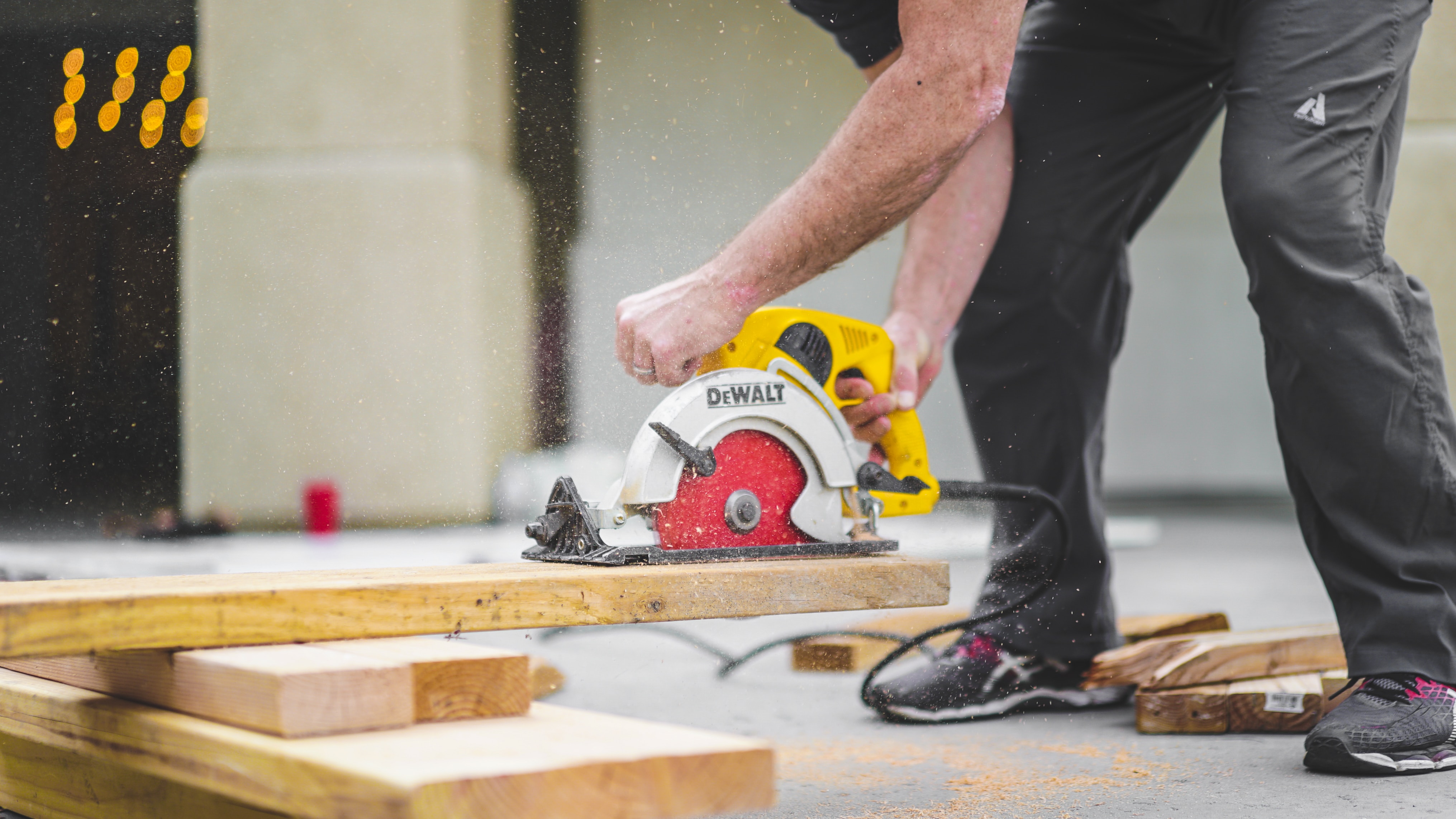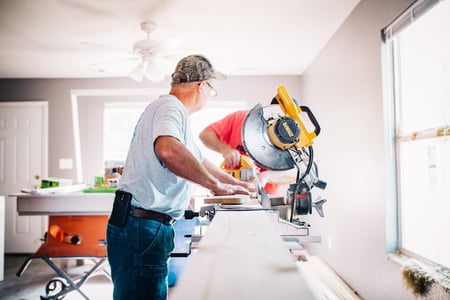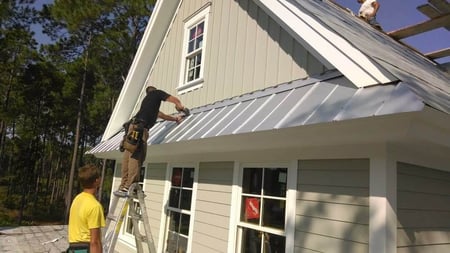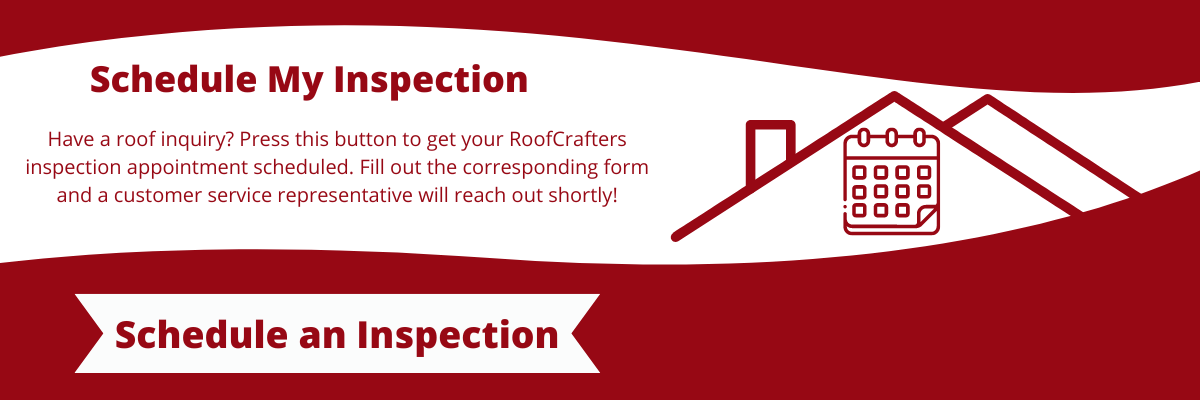Your DIY Roof Replacement Failed: What's Next?
November , 2023 | 6 min. read

Roof replacements are a critical aspect of home maintenance, responsible for protecting your home and your family from the elements. When something goes awry, it’s hard not to channel our inner Bob the Builder; it’s human nature to want to fix what’s broken on our own. However, a failed do-it-yourself roof replacement project can be a homeowner's worst nightmare, turning what seemed like a cost-saving endeavor into a costly and potentially hazardous ordeal.
While the allure of saving money and the satisfaction of completing a project independently can be tempting, the complexity of roofing work demands a level of expertise that many homeowners underestimate. Listen, we’ve all been there. From trying to troubleshoot our own smart devices to fixing a broken window, some DIY projects are easier (and safer) than others, but at RoofCrafters, we can promise you that a roof replacement is not one of them.
That being said if you’ve recently tried to replace your roof DIY style, and you’ve had a bit of an oops moment, we’re not mad at you, just disappointed. Kidding. In all seriousness, we want to make sure you get the help you deserve, so in just a few short moments, you’ll learn why you should avoid DIY roof replacements in the future, what to do if your latest project has failed, and your next steps. Let's get started!
Don’t Try to DIY

DIY roof replacements aren’t the best idea for several different reasons, so we suggest leaving it up to the experts. Replacing a roof is a complex and potentially dangerous task that typically requires professional expertise. While some skilled homeowners may successfully undertake DIY roof replacements, it is generally considered a bad idea because of:
.png?width=1200&height=200&name=Recommended%20Reading%20(42).png)
Safety concerns: Roof work involves working at heights, which can be dangerous if you lack the proper safety equipment and training. Falls from roofs can result in severe injuries or even fatalities.
Lack of experience: Professional roofers have years of experience and training that enable them to handle various roofing materials and techniques. DIYers may not have the knowledge to address potential issues that can arise during the project.
Warranty issues: Many roofing materials come with warranties that are voided if a certified professional does not perform the installation. This means that if you attempt a DIY roof replacement, you may not have the warranty coverage in case of problems.
Quality and longevity: A professionally installed roof is more likely to have a longer lifespan and fewer issues than a DIY project. Small mistakes in a DIY installation can lead to water leaks, structural damage, and other problems over time.
Building codes and permits: Roof replacements often require permits and adherence to local building codes. Professional roofers are usually well-versed in these regulations, ensuring your project is compliant. Failing to meet code requirements can lead to legal and financial consequences.
Equipment and tools: Roofing projects often require specialized tools and equipment that DIYers may not have access to. Renting or purchasing these tools can add significant costs to the project.
Time and effort: Roof replacements are labor-intensive and time-consuming. It may take DIYers significantly longer to complete the project, leading to disruptions in their daily lives.
Unforeseen issues: Roofing projects can uncover hidden problems like rot, structural damage, or inadequate insulation. Professionals are better equipped to address such issues, while DIYers might struggle to tackle them effectively.
Aesthetic concerns: DIY roof replacements may not achieve the same level of visual quality as professional work. Uneven shingles, misaligned flashing, and other imperfections can affect the appearance of your home.
Resale value: A professionally installed roof can enhance the resale value of your home, while a poorly executed DIY project can have the opposite effect.
Your DIY Roof Replacement Failed: What's Next?

If you decide anyway, “Hey, I can do this!”, (which, we heavily advise against), but your DIY roof replacement doesn’t turn out quite the way you expected, it's important to address the issues promptly to prevent further damage to your home. Here are the steps you should consider taking:
.png?width=1200&height=200&name=Recommended%20Reading%20(43).png)
Assess the damage: Start by evaluating the extent of the damage and the specific issues that led to the failure. Identify any leaks, water damage, or structural problems resulting from the unsuccessful roof replacement.
Temporary fixes: If there are active leaks or further exposure to the elements, make temporary fixes to prevent additional damage. This might involve using tarps or other materials to cover the exposed areas.
Contact a professional roofer: It's essential to bring in a professional roofing contractor with experience in repairing or completing a failed DIY project. They can provide an expert assessment and recommend the necessary repairs or a complete roof replacement if the damage is extensive.
Document the work: Take pictures and keep records of the DIY work you performed. This documentation may be useful when dealing with insurance claims or working with a professional roofer to understand what went wrong.
Check for warranties: Review any warranties associated with the roofing materials you used. Some manufacturers offer warranties that may cover materials or labor for a specified period. If applicable, contact the manufacturer to see if you can take advantage of the warranty.
Contact your insurance company: If the failure has resulted in significant damage or water infiltration, you may need to file a claim with your homeowner's insurance. Be prepared to provide documentation, such as photos and records, to support your claim.
Legal considerations: In some cases, if the DIY roof replacement caused damage to your home or neighboring properties, you may need to consult with legal counsel. Liability and local building code violations can come into play.
Budget for repairs: Be prepared for the financial aspect of repairing the failed roof replacement. Hiring a professional roofer may come with additional costs, and you should budget accordingly.
Review your approach: It's crucial to understand why your DIY roof replacement failed. Were there issues with the installation, choice of materials, or other factors?
Avoid future DIY roofing projects: For any future roofing projects, it's advisable to hire a professional roofing contractor with the necessary expertise and equipment to ensure the job is done correctly and safely.
Understanding the Risks: Why Homeowners Should Avoid DIY Roof Replacements

As you now know, homeowners should seriously consider avoiding DIY roof replacements for several compelling reasons. Roof replacement is a complex and potentially hazardous task that demands a high level of expertise. Safety concerns, lack of experience, and the risk of voiding warranties on roofing materials are just a few of the compelling arguments against tackling such a project independently.
Professional roofers possess the essential skills, knowledge, and tools to ensure that a roof replacement is completed correctly, adhering to local building codes and regulations. They can address unforeseen issues, provide warranties for their work, and guarantee the longevity and structural integrity of your roof. In contrast, DIY attempts at roof replacement often come with significant safety hazards, the potential for costly mistakes, and limited recourse in the event of problems.
To safeguard your home, your family's well-being, and your long-term investment, it is strongly recommended to entrust roof replacement projects to experienced professionals. So, put down the power tools, take off your hard hat, and hit the “Schedule an Inspection” button down below instead. One of our experts will examine the state of your roof, and explain your next steps, all while keeping your feet on the ground, and away from the hammers and nails!
My name is Cassie, and I’m the Content Manager here at RoofCrafters. I was born and raised in Chicago, Illinois, and made my way out to Florida post-college graduation. I’m incredibly passionate about writing and creating valuable content that helps others with the collaboration of my marketing team. When I’m not working, I enjoy shopping (a little too much), spending time at the beach, and reading!



